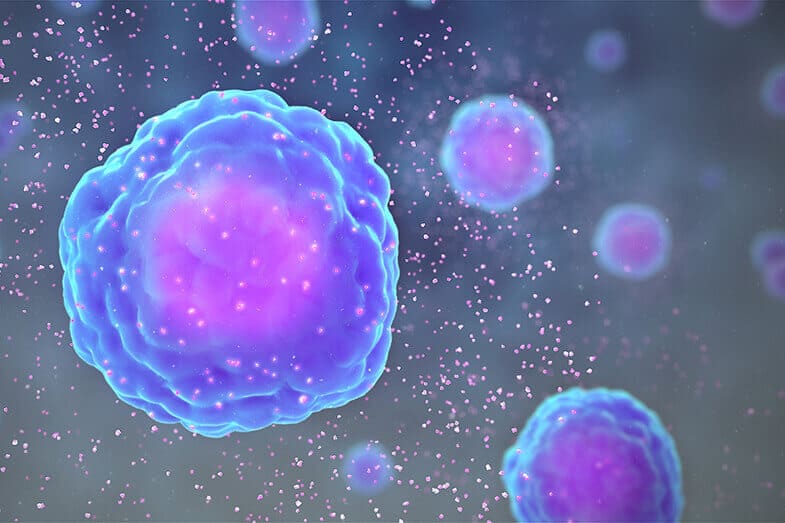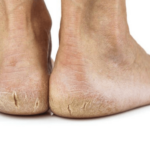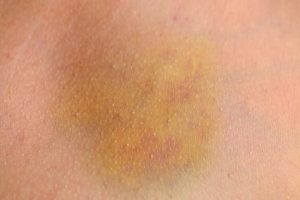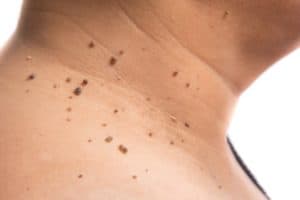There’s almost nothing worse than an itch that won’t go away! What’s more is sometimes we get an itch in the most unusual places, like the soles of our feet. So what causes itchy soles of feet at night?
The possible causes for itchy soles of feet at night include:
- Warmer body temperature at night
- Natural body changes occurring at night
- Fewer Distractions at night, so notice the itch
- Athlete’s foot
- Dermatitis – Atopic dermatitis or contact dermatitis from irritating bedding material
The possible remedies for itchy soles of feet at night include:
- Apply a lubricating, alcohol-free moisturizer
- Take a warm bath before bed with Epsom salt, colloidal oatmeal, or baking soda mixed in
- Keep cool at night with few blankets and a humidifier on
- Do yoga or meditation before bed
- Avoid alcohol and caffeine before bed
- Avoid skincare products or soaps with aggravating chemicals
- Keep your fingernails short to avoid damaging your skin if or when you do scratch
- If athlete’s foot, use an antifungal cream or baking soda mixed with water
Read on to learn more about why you have itchy soles of your feet at night and how to make the itch go away.
Also, for an excellent gallbladder formula, take a look at O’Keeffe’s For Healthy Feet Foot Cream, on Amazon, to see its price and great reviews:
Click here to see it on Amazon.
Itchy Soles of Feet at Night – Possible Causes
1. Warmer Body Temperature
One natural cause of itchy soles is that your body increases in temperature at night. Increased body temperature increases your blood flow as well as skin temperature, which can irritate it.
Warmer body temperature also means you lose more water at night, which dries it out, and dry skin is more likely to get itchy.
The best temperature for sleep is different from person to person. It is better to be on the cooler side than warmer because the cooler temperature helps your core body drop. 60-65 Fahrenheit (15-18 Celsius) is recommended by sleep experts for optimal sleep.
Ensure not to use blankets that are too thick and hot, and to keep your feet cool, leave them out from the blankets and sheets so that they can breathe.
2. Natural Body Changes Occurring During Sleep

While you are in a deep sleep, your body also doesn’t just lie there and do nothing. It is a self-regulating machine that naturally repairs itself from natural environmental damage caused throughout the day. Sleep reduces the body’s level of cortisol.
Cortisol is known as the stress hormone and is responsible for thinning skin, wrinkles, and many other signs of aging.
Sleep also increases the body’s level of melatonin. Melatonin is known as the sleep hormone and acts as an antioxidant, fighting off signs of aging.
While you’re sleeping, your body increases the efficiency of certain growth hormones that repairs collagen, which helps give your skin tightness and elasticity.
All these changes are beneficial, but some can trigger an itch. For example, at night, your body releases cytokines, which are small proteins that regulate your immune system.
These cytokines can increase inflammation which can make your skin itchy. Atopic dermatitis, an inflammatory skin disease that we’ll discuss later, appears to involve abnormal cytokine production.
3. Fewer Distractions at Night so You Notice the Itch
Perhaps one of the most common natural reasons why your skin itches only at night is because there are fewer distractions. During the day, there is work, school, noise, phone notifications, social media, and so much more to keep your mind occupied.
At night, when everything quiets down and you are in silence, it is much easier to notice the itch, and it feels more intense. You also have your shoes and socks off, which can bring the itch to your attention.
See the below video for more reasons for itchy feet soles at night and how to stop the itch:
4. Athlete’s Foot
A more serious cause of the itchy soles could be Athlete’s feet.
Athlete’s foot, known medically as tinea pedis, is a very common infection of the feet caused by fungus. It’s called athlete’s foot because it’s a common issue for athletes who keep their feet in tight-fitting, sweaty socks and shoes for long periods of time.
1 in 10 people in North America has some form of athlete’s foot. The fungus grows in warm, damp surfaces such as public showers, swimming pools, locker rooms, damp towels, or in damp socks or shoes where bacteria and the fungus multiply rapidly.
It often forms between the smallest toes of your feet, producing white and soggy toes that can scale, crack and become mildly to severely itchy. It often spreads to the soles of the feet, which can be made worse by sweaty feet.
If the cause for your itchy soles is athlete’s feet, you can first try an over-the-counter topical antifungal cream, gel, or lotion as these solve uncomplicated cases.
If this doesn’t work, or your foot is very inflamed, see your doctor as they can easily diagnose it.
They examine the feet for scaling, itchiness, and a strong foot odor. They exclude other possible skin conditions such as eczema, psoriasis, and ringworm by scraping a small sample of lesions from the feet and sending it to a lab to test.
An athlete’s foot that has become inflamed may have a bacterial infection, and the doctor would need to first treat the infection before antifungals are used.
To treat the fungus, the doctor will prescribe a stronger antifungal cream or may prescribe an antifungal pill. Special aluminum acetate wet dressings may be prescribed for severe cases. Shoes may also be specially treated with antifungal powders.
To prevent getting athlete’s foot, follow these tips:
- Ensure you have good hygiene and keep your feet cool and dry.
- Clean your feet daily with soapy water.
- Dry them well especially in between the toes.
- Avoid wearing shoes when possible to let your feet air out as much as possible.
- Use talcum powder or aluminum chloride powder to absorb moisture.
- Wear absorbent socks such as those made of cotton, but don’t wear them at night as your feet will get too hot.
- Do not wear socks that are too tight and change them often, especially after exercising or any excess sweating.
- Do not wear socks made of aggravating fabrics such as itchy wool or polyester.
5. Dermatitis
If your feet are not sweaty, hot, clammy, and you keep them clean and cool, then instead of athlete’s feet, they may be itchy due to dermatitis.
Dermatitis is a widespread term for inflammation of the skin. It has many causes and comes in many forms, normally an itchy rash on red, swollen skin.
The skin can also blister, ooze, flake off or develop a crust. But you may still have dermatitis if you just have itchy skin and no redness or signs of inflamed skin.
Dermatitis is not contagious, but it can be frustrating dealing with the itchy skin and lack of simple, straightforward treatments. The large categories of dermatitis include atopic dermatitis (eczema), contact dermatitis, and seborrheic dermatitis.
Atopic dermatitis (eczema) often begins in infancy. It is a red, itchy rash commonly where the skin bends and flexes, such as behind the knees, in the elbows, and the front of the neck.
When scratched, the affected skin can leak fluid and develop a crust. The cause of eczema is related to many things, including dry skin, immune dysfunction, gene variation, bacteria on the skin, and environmental factors.
One reason why those with atopic dermatitis may scratch at night only is due to the production of cytokines. Cytokines are proteins that regulate the body’s immune response and inflammation by sending cells to infected or distressed areas of your body.
For those with atopic dermatitis, they may have abnormal cytokine production, which means at night, their production can irritate the skin and make it itchy.
Contact dermatitis is a rash that occurs on parts of the body that have come in contact with substances that irritate it.
Common causes include certain plants such as poison ivy, clothing such as polyester or wool, harsh soaps and cleaning products, preservatives in many creams and lotions, and much more.
Seborrheic dermatitis is a rash with red, scaly patches and stubborn dandruff. It usually appears on oily parts of the body such as the face (including red nose), back, and upper chest.
In infants, this is known as cradle cap. It may be caused by a fungus that is contained within the oil secretion on the skin.
As dry skin is one of the most common triggers of dermatitis, it is important to avoid dry skin at all costs!
- Take shorter showers or baths, such as no more than 5 or 10 minutes, and use lukewarm, not hot water. If you take a bath, adding bath oil may help prevent your skin from drying out too much.
- Use only mild, gentle soaps or non-soap cleansers that are fragrance-free. Fragrances added to cleansing products are often the most irritating for the skin. Many products come in fragrance-free versions, and if you still want a pleasant scent, you can mix in some fragrant essential oil such as rose or lavender oil.
- Moisturize while your skin is still damp in order to seal in the moisture. Ensure it is also fragrance-free and test a few different products to find one that feels best and is most effective at preventing your skin from drying out.
Other Possible Causes of Itchy Soles at Night
Although less common than athlete’s foot or dermatitis, it’s worth mentioning these other possible causes of your itchy soles at night.
One possible cause could be bed bugs. Bed bugs are tiny, round, flat, brown insects. They hide during the day in the mattress or box spring, inseams, or in crevices of furniture. At night, when all is quiet, they become active and use their smell to find the sleeping human to feed on.
Bed bugs are expert hitchhikers and hitch a ride on luggage or clothing, so if you have traveled somewhere, especially at a seedy hotel, then that could be where they came from. They also can come into your house on used furniture or left behind by a previous owner or guest.
A common way to tell if you have bed bugs is tiny red bite marks on your lower legs, ankles, feet, and soles. If it is just your soles that are itchy, it may be unlikely to be bed bugs, as often these red itchy bite marks will appear in different parts other than only your soles.
You can also look for rusty or reddish stains on your sheets or mattress, which are caused by the bed bug being crushed as you moved around at night.
Also, look for tiny dark spots on your sheet, which could be bed bug excrement – spotting these marks are easier with lighter colored sheets. If you suspect it is bedbugs, call a bug exterminator as soon as possible, and they will spray all around the inside of your house and eliminate the infestation.
On the topic of bugs, the cause of itchy soles is likely not spiders as spiders are shy and seldom bite unless they are provoked. And if they are provoked, there are few that are capable of breaking through the skin.
There are many other causes for itchy skin such as hives, chickenpox, kidney or liver disease, polyester bedding, thyroid problems, psychological conditions such as stress, depression, and schizophrenia, including birth control and nerve disorders, such as diabetes, multiple sclerosis, and shingles, iron deficiency anemia, irritation, or possibly a nervous habit.
These all cause itching in many different parts of the body, not just in one area. So if only your soles are itchy, they aren’t likely, however, worth mentioning.
Remedies and Treatments
See the below video, which shows the cause of itchy soles of feet at night may be due to a backed-up gall bladder and liver:
In the video, Dr. Berg recommends his Gallbladder Formula, which contains purified bile salts to stop the itch.
Click here to see it on Amazon.
You can apply a lubricating, alcohol-free moisturizer such as Eucerin, Cetaphil, Vanicream, or CeraVe on your soles before bed. You can apply cool, wet compresses to soothe the itch — a popular treatment for athlete’s foot.
Take a soothing bath of lukewarm water with colloidal oatmeal, baking soda, or Epsom salt mixed in.
Turn on a humidifier to add moisture to the air in your room while you sleep.
If stress is aggravating your skin, you could benefit from techniques like yoga, meditation, or progressive relaxation.
Don’t have any caffeine or alcohol before bed as it widens your blood vessels, sending more blood to your skin, which warms it up and causes it to itch.
Avoid cosmetics, scented soaps, perfumes, or other products with aggravating chemicals.
Keep your fingernails short to avoid damage from scratching. It’s easier said than done to say, “Don’t scratch!” But consciously, try not to scratch as it irritates the skin even more, which leads to a constant itch-scratch cycle.
You can also make your own home remedy with baking soda or saltwater, such as shown below. Important! The below treatments are not effective for fungal infections such as athlete’s foot. For that, use an antifungal cream or see a doctor.
- Baking Soda Paste: Baking soda is an old household remedy for simple itches and is fairly effective at soothing and reducing irritation. Mix together 2 to 3 teaspoons of water with 1 tablespoon of baking soda. Stir until a smooth paste forms. Spread this paste on the soles of your feet, allow it to dry for 5 to 10 minutes, and then rinse with cool water. Pat your feet dry with a towel.
- Saltwater Soak: Sometimes soaking your feet in salt water can ease irritation and reduce the itchy feeling you get at night. Mix together 2 teaspoons of salt in 1 pint of warm water. Pour into a shallow pan and leave your feet in the pan for 5 to 10 minutes. Repeat as often as necessary, such as every hour, until the annoying itching dies down.
If you have tried some home remedies without success, you could try prescription or over-the-counter medications. Just use caution and follow the instructions. To help you fall asleep and stay sleeping through the itch, you could buy melatonin at your local drugstore or online.
It is a natural hormone with a sedative effect that can help you regulate sleep. Old antihistamines such as diphenhydramine (Benadryl), chlorpheniramine (Chlor-Trimeton), promethazine (Phenergan), and hydroxyzine (Vistaril) relieve the itch and make you sleepy.
Newer antihistamines, such as cetirizine (Zyrtec) or fexofenadine (Allegra), are also helpful and may be taken at night to help make you feel sleepy. Steroid creams are potent weapons for stopping the itch in its tracks. Antidepressants such as doxepin (Silenor) or mirtazapine (Remeron) have a sedative and anti-itch effect as well.
Like any medication, follow the instructions, do not use for past the recommended time, and follow the advice of your doctor for prescription treatments.
Conclusion – Itchy Soles of Feet at Night
To recap, the possible causes for itchy soles of feet at night include:
- Warmer body temperature at night
- Natural body changes occurring at night
- Fewer Distractions at night, so notice the itch
- Athlete’s foot
- Dermatitis – Atopic dermatitis or contact dermatitis from irritating bedding material
Try the remedies listed above, and over time, you will be able to get rid of the itch and have a better sleep.
Related reading:
Bruise Itches [Causes and Treatments for an Itchy Bruise]
Birth Control Itchy Skin – Causes and Treatments
Why Does It Feel so Good to Scratch My Feet?
Bottom of Your Feet Itchy Meaning – Medical and Superstition




![How to Get Dead Skin Off Lips [6 Natural Remedies] how to get dead skin off lips](https://skincaregeeks.com/wp-content/uploads/2021/04/how-to-get-dead-skin-off-lips-150x150.jpg)

![Bruise Itches [Causes and Treatments for an Itchy Bruise] bruise itches](https://skincaregeeks.com/wp-content/uploads/2021/04/bruise-itches-150x150.jpg)


